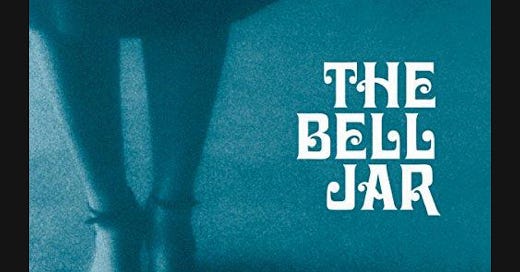Before you get ahead of me, please understand I didn’t listen to The Bell Jar out of some lofty literary pretentiousness. My reasons were far more superficial and honest:
Rory Gilmore of Gilmore Girls frequently reads/references Sylvia Plath and I wanted to see what the fuss was about, and
Maggie Gyllenhaal narrates it and I mean goddamn, I’d listen to that woman read the phone book (or perhaps a privacy policy would be more relevant nowadays)
Beyond that there’s almost nothing I can say about The Bell Jar without revealing rather major spoilers, so consider this your warning.
Still with me? Ok, here we go.
I went into this blind as I always prefer experiencing a cultural artifact for the first time with as few preconceptions as possible, so it wasn’t until the book had finished and a subsequent short biography of Sylvia Plath followed that I learned The Bell Jar is semi-autobiographical, closely mirroring the events of Plath’s own life. You could even call it a roman à clef if you’re the type to throw around pompous five-dollar bullshit terms, which I’m not, as evidenced by how I kept mentally translating the title to The Bell End.
I found myself disliking protagonist Esther Greenwood throughout much of the first half of the book. Despite being young, beautiful, talented and fortunate, Esther is dissatisfied with the world around her and unable to take joy in anything, giving off a distinctly sullen Holden Caulfield vibe (and I am far from the first to draw that parallel), and I truly raged when she abandoned her friend, or at least as close to a friend as she had, passed out in a hallway in a pool of vomit instead of fucking helping her!
Of course as the novel progressed I developed more sympathy for Esther (and in hindsight thus too for Plath) as it became apparent that the old adage holds true: We’re all dealing with our own shit. In Esther’s (and Plath’s) case this happens to be clinical depression, and we tag along as she slides into a suicidal funk that ends with her committed to a high-end treatment facility, where under the care of an actually-competent female therapist Esther slowly but eventually makes progress to the point that she might be able to face the outside world again. That Esther feels her “bell jar” has been lifted demonstrates her improvement, but the awareness that it might one day close over her again looms even without knowledge of the events of the author’s life.
An interesting but sad tidbit from the appended biography relates to how Plath intended The Bell Jar to be the first of a two-book series, with this book focused on living through the sickness of depression and the sequel focused on living in health. My immediate reaction was “I don’t think that’d make a very good book…” and I have to wonder if Plath came to the same conclusion. Or perhaps she just couldn’t bring herself to write a lie.
[Photo: Screenshot of The Bell Jar opened in the iPhone Audible app]



